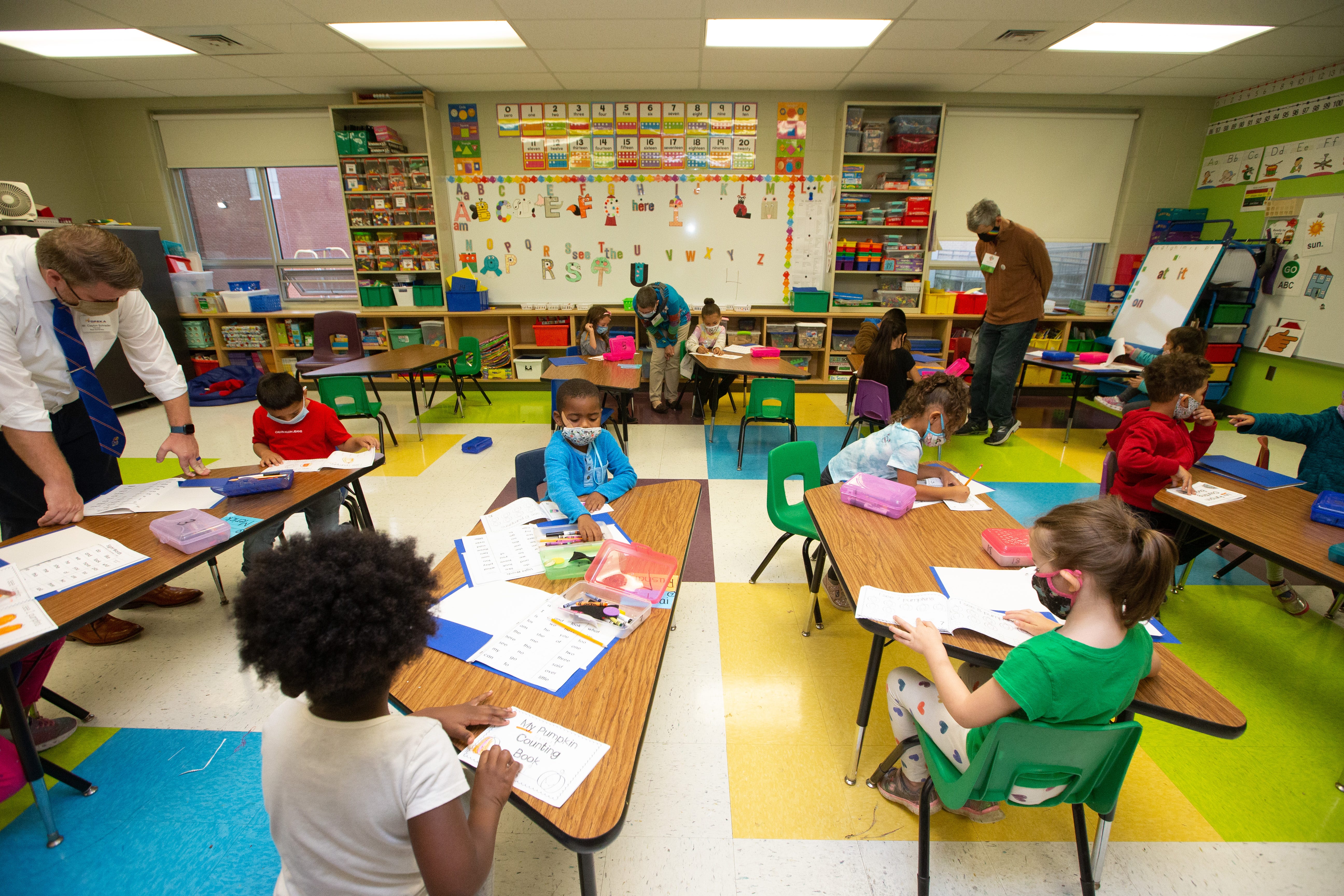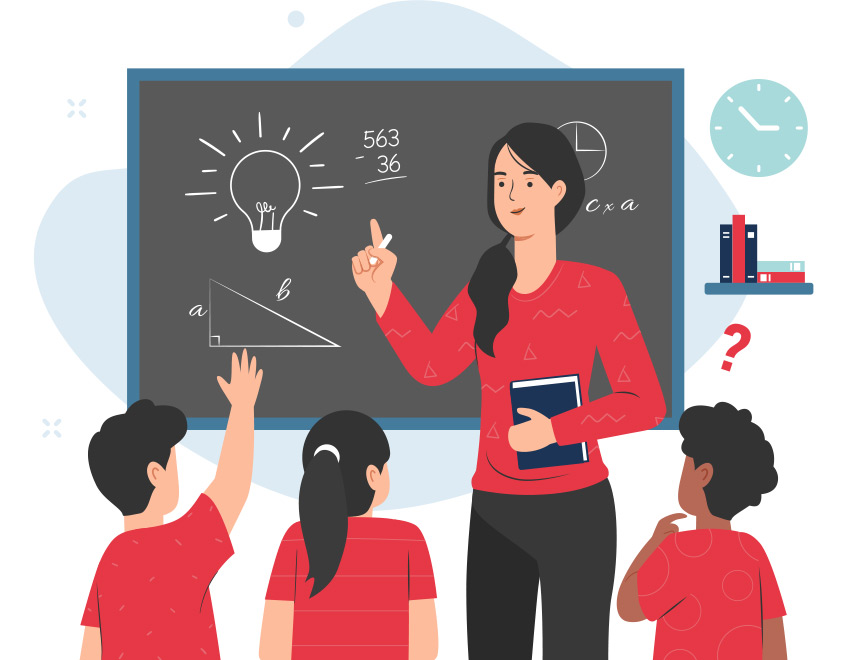Top Primary Science Tuition Singapore to Help Your Child Excel
Top Primary Science Tuition Singapore to Help Your Child Excel
Blog Article
Checking Out the Different Training Methods in Key Scientific Research Education Today
Inquiry-based knowing, hands-on experiments, and the combination of innovation are redefining exactly how instructors involve young minds. Additionally, collaborative methods and differentiated instruction are being employed to cater to the diverse demands of pupils, enhancing both engagement and understanding.
Inquiry-Based Discovering
Inquiry-Based Discovering (IBL) is an instructional technique that motivates trainees to explore scientific concepts via wondering about, examination, and hands-on testing. This technique highlights the function of students as energetic individuals in their discovering, promoting important reasoning and analytical abilities. By engaging with real-world questions, students become motivated and curious, which improves their understanding of scientific principles.
In IBL, instructors serve as facilitators, leading pupils as they navigate their inquiries as opposed to supplying info straight. This student-centered method enables distinction, suiting various discovering rates and designs. Trainees develop abilities in formulating theories, creating experiments, and evaluating information, which are vital for scientific proficiency.
Additionally, IBL cultivates partnership amongst trainees, urging them to share ideas and searchings for. This collective query promotes social abilities and a feeling of neighborhood within the class. Additionally, the process of query encourages strength, as students discover to welcome failure as a tipping rock towards understanding.
Hands-On Experiments
Hands-on experiments are a crucial part of effective science education and learning, enhancing the principles of inquiry-based discovering. These experiments permit students to engage straight with clinical concepts, promoting a much deeper understanding through experiential discovering. By manipulating products and observing outcomes, young learners can understand abstract concepts in tangible means.
Such activities promote important reasoning and analytic abilities, as pupils hypothesize outcomes, conduct experiments, and evaluate results. This process motivates them to ask inquiries, improve their understanding, and develop a scientific mindset. Moreover, hands-on experiments can be customized to diverse knowing designs, making sure that all trainees have the possibility to involve meaningfully with the content.
Moreover, hands-on experiments frequently urge collaboration amongst peers, advertising teamwork and interaction skills. Operating in teams makes it possible for pupils to share concepts, talk about findings, and pick up from one an additional, which improves their overall educational experience.
Incorporating hands-on experiments right into the key scientific research curriculum not only enriches the learning environment yet likewise cultivates a lifelong interest in scientific research. By proactively taking part in their education and learning, pupils are extra most likely to establish a passion for scientific questions that expands past the classroom.

Modern Technology Integration
Incorporating modern technology right into primary science education has ended up being progressively crucial in fostering student engagement and enhancing learning results. Making use of electronic tools, such as interactive simulations, virtual labs, and educational software application, supplies trainees with possibilities to explore clinical ideas in cutting-edge ways. These resources promote a much deeper understanding of intricate subjects by enabling learners to picture and adjust variables that would certainly be unwise in a standard class setup.
Additionally, innovation combination motivates personalized learning experiences. Pupils can proceed at their own pace, revisiting tough principles with multimedia sources, which cater to various discovering designs. This versatility not only sustains private growth however likewise cultivates a feeling of autonomy in learners.
Additionally, technology functions as a bridge to real-world science, attaching pupils with existing research study and expert payments. Accessibility to clinical journals and on the internet databases broadens pupils' point of views on scientific inquiry and fosters vital assuming abilities.
Collaborative Learning
Collective learning plays a crucial role in main science education and learning by fostering team effort and interaction skills amongst students. This approach motivates students to interact, share anonymous knowledge, and take part in problem-solving, which improves their understanding of scientific ideas. By joining team activities, trainees find out to verbalize their concepts, listen to diverse viewpoints, and work out remedies, all of which are crucial skills in both scholastic and real-world contexts.

Study indicates that collective understanding can result in boosted inspiration and engagement in science topics, as pupils find pleasure in common experiences (primary science tuition Singapore). In addition, this approach prepares trainees for future collective undertakings, equipping them with the skills needed for reliable teamwork in higher education and expert atmospheres. Inevitably, welcoming collaborative knowing in main scientific research education and learning can significantly enrich the discovering experience and promote a much deeper understanding of scientific questions
Set Apart Instruction

Set apart direction can show up in various methods, such as differing the content, procedures, or products of discovering. For example, instructors might utilize tiered tasks that give varying levels of intricacy, permitting students to work at their particular preparedness degrees. Additionally, versatile grouping approaches can facilitate partnership among trainees with different capabilities, cultivating peer understanding.
Assessment plays an essential duty in this method, as it notifies direction and assists teachers comprehend each pupil's one-of-a-kind demands. Formative assessments, such as quizzes and observations, can guide teachers in readjusting their approaches to boost finding out end results. primary science tuition Singapore. Inevitably, by carrying out set apart guideline in main science education, educators can grow an extra effective and equitable understanding setting, encouraging all trainees to reach their full potential in understanding scientific sensations
Verdict
In recap, the diverse mentor methods in primary science education and learning, consisting of inquiry-based discovering, hands-on experiments, innovation combination, collaborative understanding, and separated guideline, jointly contribute to an extra efficient knowing environment. These approaches promote crucial reasoning, analytical skills, and a much deeper comprehension of clinical concepts. By applying these approaches, educators can produce engaging and encouraging class that attend to the diverse requirements of pupils, ultimately cultivating a lifelong rate of interest in scientific research helpful site and improving scholastic achievement.
Inquiry-Based Discovering (IBL) is an instructional method that urges students to check out clinical concepts with wondering about, investigation, and hands-on testing.Joint knowing plays a crucial role in primary scientific research education and learning by fostering team effort and interaction abilities among students.Research study shows that collaborative knowing can lead to raised inspiration and interaction in scientific research topics, as pupils locate satisfaction in shared experiences.In promoting a comprehensive understanding environment, distinguished direction arises as a vital approach to accommodate the diverse needs and abilities of trainees in main science education. Eventually, by carrying out set apart guideline in my sources key scientific research education and learning, instructors can grow an extra efficient and fair discovering atmosphere, equipping all trainees to reach their full potential in understanding scientific sensations.
Report this page